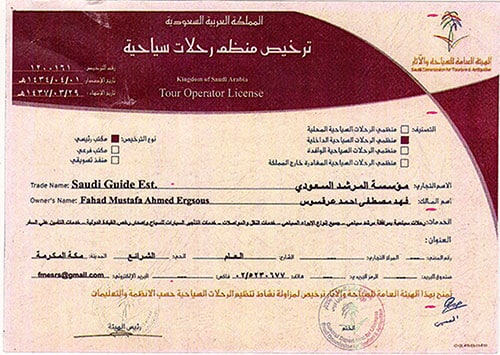بسم الله الرحمن الرحيمالحمد لله رب العالمين وصلى الله وسلم على رسول الله وعلى آله…
Shir’konspicuous’ – The Greatest Sin
بسم الله الرحمن الرحيم
الحمد لله والصلاة والسلام على رسول الله وعلى آله وصحبه، أما بعـد
Allaah سبحانه و تعالى Says in His Noble Book:
إِنَّ اللَّهَ لَا يَغْفِرُ أَن يُشْرَكَ بِهِ وَيَغْفِرُ مَا دُونَ ذَٰلِكَ لِمَن يَشَاءُ ۚ وَمَن يُشْرِكْ بِاللَّهِ فَقَدِ افْتَرَىٰ إِثْمًا عَظِيمًا
“Verily, Allaah forgives not that partners should be set up with Him (in worship), but He forgives except that (anything else) to whom He wills; and whoever sets up partners with Allaah in worship, he has indeed invented a tremendous sin.” [An-Nisa’: 48]
.
Abu Musa al-Ash’ari رضي الله عنه narrated that the Messenger of Allaah صلى الله عليه وسلم said:
أيها الناس، اتقوا هذا الشرك، فإنه أخفى من دبيب النمل، فقال له من شاء الله أن يقول: وكيف نتقيه وهو أخفى من دبيب النمل يا رسول الله؟ قال: قولوا: اللهم إنا نعوذ بك من أن نشرك بك شيئاً نعلمه، ونستغفره لما لا نعلم
“O people, save yourselves from shirk, for it is more inconspicuous than the creeping of the ant. Someone whom Allaah willed (to speak) asked: ‘How do we save ourselves from it while it is more inconspicuous than the creeping of the ant O Messenger of Allaah?’ He صلي الله عليه وسلم said: ‘Say: O Allaah we seek refuge in You from associating anything with You knowingly, and we seek Your forgiveness for what we do unknowingly.‘”
Musnad Ahmad, 4/403; Musnad Abi Shaybah, 6/70; Musnad Abi Ya’la, 1/60 – classed as saheeh in ‘Saheeh al-Jaami’ As-Sagheer’, 3/233 (2876)]
1. Messenger of Allaah صلى الله عليه وسلم said: “Shirku’l-Khafi (hidden shirk) in the Muslim nation is more inconspicuous than the creeping of a black ant on a black stone in the darkness of the night. And this inconspicuous Shirk is expiated by saying thrice the following sentences within a day and a night: “Allahumma inni a’udhu bika an ushrika bika wa-anaa a’alam, wa-astaghfiruka limaa laa a’alam (O Allah, I take refuge in you lest I should commit shirk with you knowingly, and I seek your forgiveness for what I do unknowingly).” [Jaami’ as-Sagheer, 4934]
2. “Shirk is the greatest of sins, because Allaah has told us that He will not forgive the one who does not repent to Him from it, but in the case of (other) lesser sins, the matter is subject to His will: if He wills, He will forgive the one who meets Him with that sin unrepentant, and if He wills, He will punish him. This means that we should fear shirk greatly, as it is so severe before Allaah.” [Fath al-Majeed, p. 58]
3. It’s inconspicuousness is not an excuse for Muslims to be lenient towards the critical matter of shirk. The thing that removes inconspicuousness and limits the damage of Shirku’l-Khafi is the du’a mentioned above; as well as learning the realities of shirk at all levels (hidden and unhidden) and applying the remedy in our daily lives and warning others about it.
4. Ibn `Abbas said, concerning the word “Al-Andaad” in al-Baqarah, 22:
الأنداد هو الشرك ، أخفى من دبيب النمل على صفاة سوداء في ظلمة الليل ، وهو أن يقول : والله وحياتك يا فلان ، وحياتي ، ويقول : لولا كلبة هذا لأتانا اللصوص ، ولولا البط في الدار لأتى اللصوص ، وقول الرجل لصاحبه : ما شاء الله وشئت ، وقول الرجل : لولا الله وفلان . لا تجعل فيها فلان . هذا كله به شرك
“Al-Andaad means Shirk which is less conspicuous than a black ant crawling on a black stone in the (darkness of the) night, such as the saying: “By Allaah and by your life, oh so-and-so!” or: “By your life,” or: “If it had not been for this little dog, the burglars would have come to us,” or “Had it not been for the duck in the house, the burglars would have come” or like a man’s saying to his companion: “By Allaah’s and your will…” or: “As Allaah and you will” or the saying of a man: “Had it not been for Allaah and so-and-so…” – Do not mention anyone (with Allaah) because all of this is Shirk.” [Ibn Abi Hatim – see Tafeer ibn Katheer, Surah al-Baqarah, 22]
5. Qatilah رضي الله عنه narrated:
أن يهودياً أتى النبي صلى الله عليه وسلم ، فقال : إنكم تشركون . تقولون : ما شاء الله وشئت ، وتقولون : والكعبة ، فأمرهم النبي صلى الله عليه وسلم إذا أرادوا أن يحلفوا أن يقولوا : وربّ الكعبة ، وأن يقولوا : ما شاء الله ثم شئت
“A Jewish man came to the Prophet صلى الله عليه وسلم and said to him: “Verily, you (Muslims) commit shirk because you say: “As Allaah Wills and as you will” and you say: “By the Ka’abah!” And so the Prophet صلى الله عليه وسلم ordered whoever wanted to swear, to say: “By the Rabb of the Ka’abah!” and to say: “As Allaah Wills, then* as you will.” [An-Nasaa`i, 7/6; – classed as saheeh by ibn Hajar in ‘Al-Isaba fi tamyiz al-Sahabah’, 4/389]
* because the use of the word `then’ does not imply parity between the Will of Allah and the will of others, as does the use of the word “and”.
6. Ibn `Abbas رضي الله عنه narrated:
أن رجلا قال للنبي صلى الله عليه وسلم: ما شاء الله وشئت، فقال: أجعلتني لله ندا، بل ما شاء الله وحده
“A man came to the Prophet صلى الله عليه وسلم and said: “As Allaah and you (i.e.Muhammad صلى الله عليه وسلم) , will”, at this (statement), the Prophet صلى الله عليه وسلم said: “Are you making me a partner besides Allaah? (Say): “As Allaah Alone Wills.” [An-Nasa’i, 6/245; Musnad Ahmad, 1839; Adab al-Mufrad, 1/290, An-Nasaa`i, – classed as saheeh by Hafidh al-Iraqi in ‘Tareekh al Ihya’, 3/200; and Ahmad Shakir in his takhreej of ‘Musnad Ahmad’, 3/253] – See also Surah al-A’raaf: 188
7. At-Tufayl, the half brother of ‘Aishah رضي الله عنهما narrated that:
رأيت كأني أتيت على نفر من اليهود، قلت: إنكم لأنتم القوم، لولا أنكم تقولون: عزير ابن الله. قالوا: وأنتم لأنتم القوم لولا أنكم تقولون: ما شاء الله وشاء محمد، ثم مررت بنفر من النصارى فقلت: إنكم لأنتم القوم، لولا أنكم تقولون: المسيح ابن الله، قالوا: وأنتم لأنتم القوم، لولا أنكم تقولون: ما شاء الله وشاء محمد، فلما أصبحت أخبرت بها من أخبرت، ثم أتيت النبي -صَلَّى اللهُ عَلَيْهِ وَسَلَّمَ- فأخبرته. قال: ((هل أخبرت بها أحداً؟)). قلت: نعم. قال: فحمد الله وأثنى عليه، ثم قال: ((أما بعد؛ فإن طفيلاً رأى رؤيا، أخبر بها من أخبر منكم، وإنكم قلتم كلمة كان يمنعني كذا وكذا أن أنهاكم عنها، فلا تقولوا: ما شاء الله وشاء محمد، ولكن قولوا: ما شاء الله وحده
“I saw in a dream that I came upon a number of Jews and I said to them: “You are indeed a good people were it not that you claim that ‘Uzayr is the son of Allaah .” They replied: “You too are good, were it not that you say: “As Allaah Wills and as Muhammad wills.” Then, I came upon a number of Christians and I said to them: “You are indeed a good people were it not that you claim that the Messiah is the son of Allaah .” They replied: “You are also good, were it not that you say: “As Allaah Wills and as Muhammad wills.” When I awoke, I told someone about this, then I went to the Prophet صلى الله عليه وسلم and repeated it to him. He asked me: “Have you told anyone about this?” I said: “Yes.” Then he went to the pulpit and, after praising Allaah , he said: “At-Tufayl had a dream which he has already communicated to some of you. You used to say something which I was prevented from forbidding to you until now. Henceforth, do not say: “As Allaah Wills and as Muhammad wills,” but say: ” What Allaah Alone Wills.” [Ibn Majah, 1/685 (2199); Tabarani, 8/235; Al-Hakim, 3/323; narrators are classed as ‘thiqaat’ upon the conditions of al-Bukhari – classed as saheeh by Ahmad Shakir in ‘Umdah at-Tafseer’, 1/91 and Al-Albani in ‘Silsilah as-Saheehah, 138]
8. For some examples of how the Prophet صلى الله عليه وسلم safeguarded Tawheed – Read Here
May Allaah make us from the true Muwahidoon



















